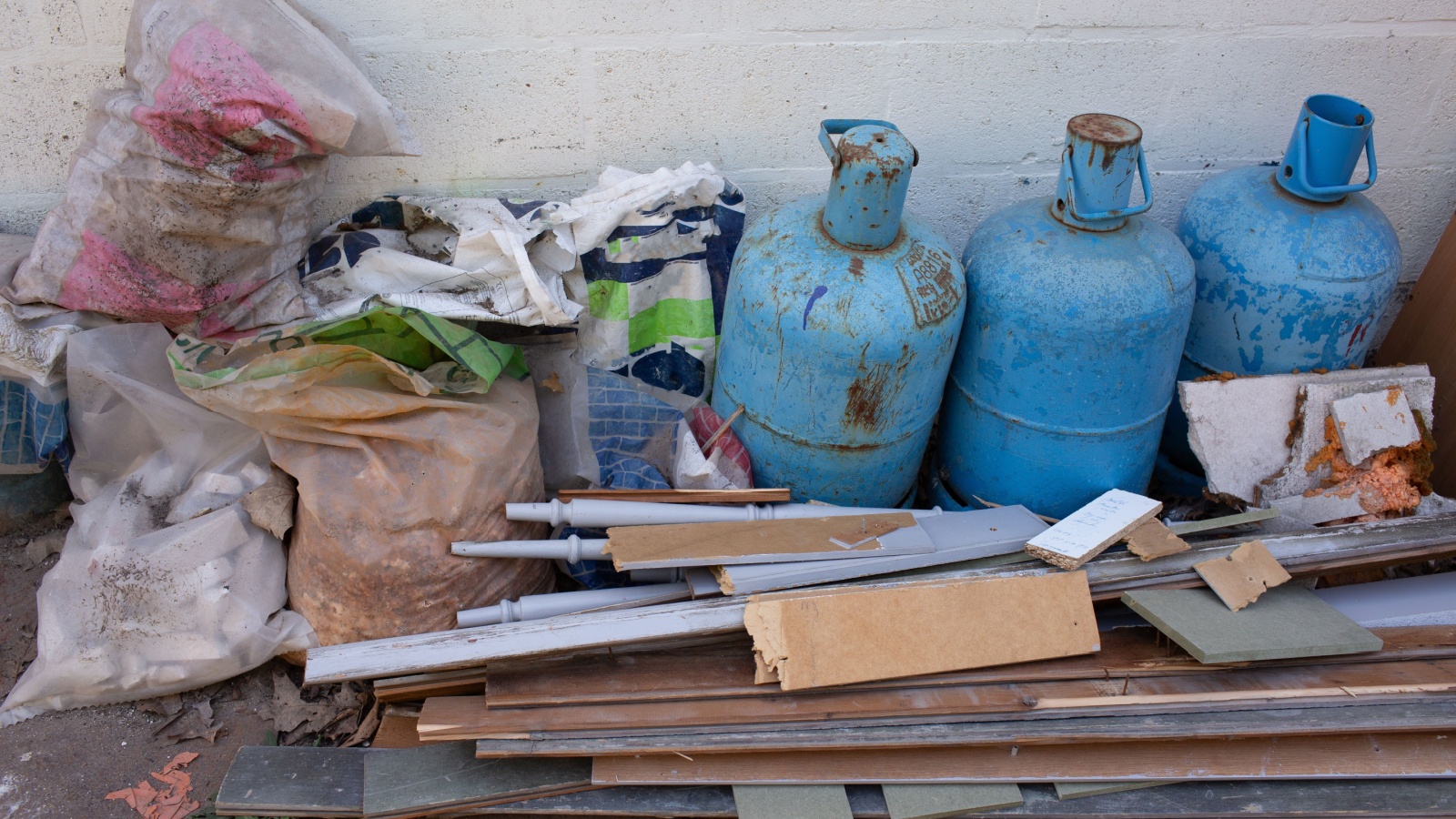Insurance is meant to protect you when things go wrong, but many Canadians don’t realize that simple mistakes can leave them without coverage. Whether it’s auto, home, or health insurance, companies look for reasons to deny claims if policies aren’t followed closely. To avoid nasty surprises, it is important to avoid the common mistakes that could leave you uncovered when you need insurance most. Here are 21 everyday mistakes that could void your insurance in Canada:
Not Updating Your Address

Failing to update your address after moving may seem harmless, but it can invalidate your insurance. Rates are based partly on your location, whether it’s crime rates for home insurance or accident risk for auto policies. If your provider discovers you’ve kept an old address, they may deny a claim or cancel your policy. Even small moves within the same city can matter, and Canadians often forget to make this update right away, but insurers see it as misleading information. A simple oversight could cost you thousands if it isn’t corrected in time.
Lending Your Car to Someone Not Covered

Many Canadians don’t realize that lending their car isn’t always risk-free. If a friend or family member gets into an accident while driving your vehicle and they are not listed on your policy, your insurance could deny the claim. Even worse, you may be held financially responsible for damages. Occasional drivers might be covered under some policies, but frequent use without proper disclosure can void coverage entirely. Before tossing someone your keys, make sure they’re approved under your plan; otherwise, the generous gesture could end up costing you dearly.
Using Your Personal Car for Business

Driving for work without proper commercial coverage is a common mistake that could leave Canadians uninsured. If you use your car for deliveries, ride-sharing, or even frequent business trips, a standard auto policy usually won’t cover accidents. Insurance companies consider this misrepresentation if not disclosed. Many drivers assume that personal coverage extends to occasional business use, but that’s rarely the case. If something happens while you’re working, your insurer can deny the claim, and to stay protected, it’s crucial to let your provider know how your vehicle is being used.
Leaving Your Home Unoccupied Too Long

Most home insurance policies in Canada have strict rules about leaving your house vacant. If you’re away for more than 30 days without telling your insurer, coverage can be voided. Even shorter absences can be a problem if no one checks on the property. Issues like burst pipes or break-ins may not be covered if insurers argue the home was “unattended”. Canadians who travel frequently often overlook this clause, only to find claims denied later. Arranging for someone to check in or notifying your provider before a long trip can save big headaches.
Misrepresenting Your Driving Record

Being less than honest about your driving record might lower your premiums at first, but it’s a mistake that could cost you coverage entirely. If an insurer discovers you’ve omitted accidents, traffic tickets, or license suspensions, they can cancel your policy or deny a claim outright. In some cases, this could even be considered fraud. Many Canadians assume insurers won’t check or that past issues won’t surface, but providers have access to driving history.
Underreporting Home cs

Renovating your home without informing your insurance company could void your coverage. Big projects like finishing a basement, adding an extension, or upgrading electrical systems change your property’s value and risk level. If insurers don’t have this information, they can deny claims later, arguing the policy no longer reflects the property. Even smaller changes, like a new roof or deck, should be disclosed. Canadians often skip this step to avoid higher premiums, but the risk isn’t worth it, as failing to report upgrades could leave you with massive out-of-pocket repair bills.
Using the Wrong Occupation on Your Policy

Believe it or not, misstating your job title can affect your insurance. Occupations sometimes influence risk levels, especially for auto and health insurance. If you list the wrong profession, whether by mistake or to save money, your provider could treat it as misrepresentation, which can mean denied claims or a canceled policy when insurers find out. Many Canadians don’t realize how specific policies can be about employment details, but even small discrepancies matter. It is important always to be clear and accurate about your work situation to ensure your coverage remains valid.
Not Disclosing a Basement Apartment

If you rent out your basement without telling your insurance provider, you could be voiding your home insurance. A rental unit changes the risk level of your property, as more people on-site means more liability, more wear and tear, and a higher chance of claims. Many Canadians casually rent out space for extra income, assuming their regular policy will cover it. Unfortunately, if something happens, like fire, flooding, or tenant damage, your insurer can deny the claim. To stay protected, you need to disclose rental arrangements and possibly add landlord coverage.
Driving Without a Valid License

Driving without a valid license, even if it’s just expired, can instantly void your auto insurance. Insurers require drivers to be legally licensed at all times, and claims can be denied if you’re caught driving without proper credentials. Many Canadians overlook renewal deadlines or assume a short lapse isn’t a significant issue, but if an accident occurs while your license is invalid, coverage won’t apply, and you’ll be left with the full financial burden. Keeping track of license status is simple, but failing to do so can have devastating consequences.
Misreporting Mileage

Your auto insurance premium is partly based on how much you drive. If you claim you only use your car for short commutes but actually rack up thousands of extra kilometers, your provider could void coverage. Insurers see this as misrepresentation, especially if an accident happens under circumstances outside the declared usage. Many Canadians underestimate their annual mileage or fudge numbers to save money, but it’s a risky gamble. With tracking devices and claim investigations, insurers often find out the truth, leaving you unprotected when you need coverage most.
Storing Hazardous Materials at Home

Keeping gasoline, propane, or other hazardous materials in your garage without notifying your insurer could void your home insurance. These items dramatically increase fire and explosion risks, which insurers must account for in their policy. Many Canadians store fuel for lawnmowers, camping equipment, or even small workshops without realizing it could affect coverage. If a fire breaks out and investigators find undisclosed hazardous storage, claims can be denied. To avoid surprises, always check your policy and disclose potentially risky items.
Failing to Install Required Safety Devices

Some insurance policies require safety equipment, such as smoke detectors, carbon monoxide alarms, or monitored security systems. If you fail to install or maintain these devices, you could lose coverage. For example, if your policy states you need a working smoke alarm and a fire occurs, your claim may be denied if the alarms weren’t functioning. Canadians often assume insurers won’t check, but investigations after a claim can uncover lapses. Installing and maintaining required safety devices is simple and inexpensive compared to the cost of losing coverage after a disaster.
Overstating the Value of Belongings

When buying home or renters’ insurance, many Canadians inflate the value of their possessions to get higher payouts in case of loss. While it may seem harmless, exaggerating can be treated as fraud, and if insurers find that claimed items were worth far less than reported, or didn’t exist at all, they can deny coverage completely. Even honest mistakes in valuations can create problems if numbers are too far off. To protect yourself, keep receipts, photos, and accurate records of your belongings, because overstating value may backfire and leave you with nothing.
Failing to Disclose Pre-Existing Conditions

For health, travel, and life insurance, failing to disclose pre-existing medical conditions is one of the most common mistakes Canadians make. Even if the condition seems minor or well-managed, insurers require full transparency. If you file a claim later and medical records show you left out important details, coverage can be voided. Some people omit conditions to lower premiums, but this often leads to denied claims when it matters most. Always be honest and thorough with medical history, as insurers will investigate, and withholding information can cost you your policy.
Using Your Home for a Business

Running a home-based business without telling your insurance provider could void your policy. Standard home insurance doesn’t usually cover business equipment, inventory, or liability related to clients visiting your property. Many Canadians assume small-scale businesses like baking, tutoring, or freelancing don’t matter, but insurers see it differently. If your laptop, tools, or supplies are damaged, or if a client is injured at your home, claims may be denied. Adding a rider or small business policy is usually affordable and ensures you’re protected adequately while working from home.
Missing Premium Payments

Missing insurance payments, even accidentally, can put your coverage at risk. Most companies offer a short grace period, but repeated missed payments can result in cancellation. If an accident or loss occurs after a lapse, you may be left uncovered. Many Canadians set up automatic payments but often forget to update their banking information after switching accounts, resulting in missed charges. Insurers don’t always reinstate coverage immediately, and gaps can hurt your record. Staying on top of payments may seem basic, but it’s one of the most common reasons Canadians lose insurance unexpectedly.
Leaving Doors or Windows Unlocked

If your home is broken into and the insurer discovers that doors or windows were left unlocked, they may deny your claim. Many policies require “reasonable care” to secure the property, and negligence can void coverage. Canadians often assume insurance will always pay out after a theft, but failing to lock up is seen as an avoidable risk. Even leaving a car unlocked with valuables inside can complicate claims. While it may seem harsh, insurers expect basic precautions, and a simple habit like double-checking locks can protect both your belongings and your coverage.
Driving Under the Influence

Driving under the influence of alcohol or drugs instantly voids auto insurance coverage in Canada. Even if you have full coverage, insurers won’t pay for damages or injuries caused while impaired. You’ll be held fully liable, facing massive out-of-pocket costs, legal trouble, and skyrocketing future premiums. Some Canadians mistakenly believe insurance will cover them regardless of the situation, but DUI-related accidents are explicitly excluded, and beyond the legal risks, the financial fallout is devastating.
Exceeding Policy Limits

Every insurance policy comes with coverage limits, and exceeding them can leave you without protection. For example, if your home policy covers $50,000 in jewelry but you own $100,000 worth, you’ll only be compensated up to the stated limit. Some Canadians don’t review their policies carefully, assuming everything is covered, but when losses occur, insurers won’t pay beyond what’s outlined in the contract. Whether it’s valuables, liability, or medical costs, failing to adjust your coverage as needs grow can leave you dangerously exposed.
Using a Vehicle for Ride-Sharing Without Coverage

Driving for ride-sharing apps like Uber or Lyft without special insurance coverage is a mistake that can void your policy. Standard personal auto insurance doesn’t cover commercial activity, meaning accidents while carrying passengers for pay may be denied. Some Canadians assume the ride-share company’s policy is enough, but it often has strict conditions. Without proper endorsement or commercial coverage, drivers risk being fully liable in the event of a crash. Before picking up passengers, it’s essential to check with your insurer and get the right protection in place.
Not Reading the Fine Print

The biggest mistake Canadians make is simply not reading their insurance policies carefully. Every policy comes with exclusions, conditions, and requirements that must be met. Ignoring the fine print means you may unknowingly break the rules, leaving you without coverage when you need it. From small details, such as deductibles, to larger issues like exclusions for certain activities, insurers expect you to understand your policy. Unfortunately, many only realize after a denied claim, making taking the time to understand your coverage the best way to avoid costly surprises.
21 Products Canadians Should Stockpile Before Tariffs Hit

If trade tensions escalate between Canada and the U.S., everyday essentials can suddenly disappear or skyrocket in price. Products like pantry basics and tech must-haves that depend on are deeply tied to cross-border supply chains and are likely to face various kinds of disruptions
21 Products Canadians Should Stockpile Before Tariffs Hit
